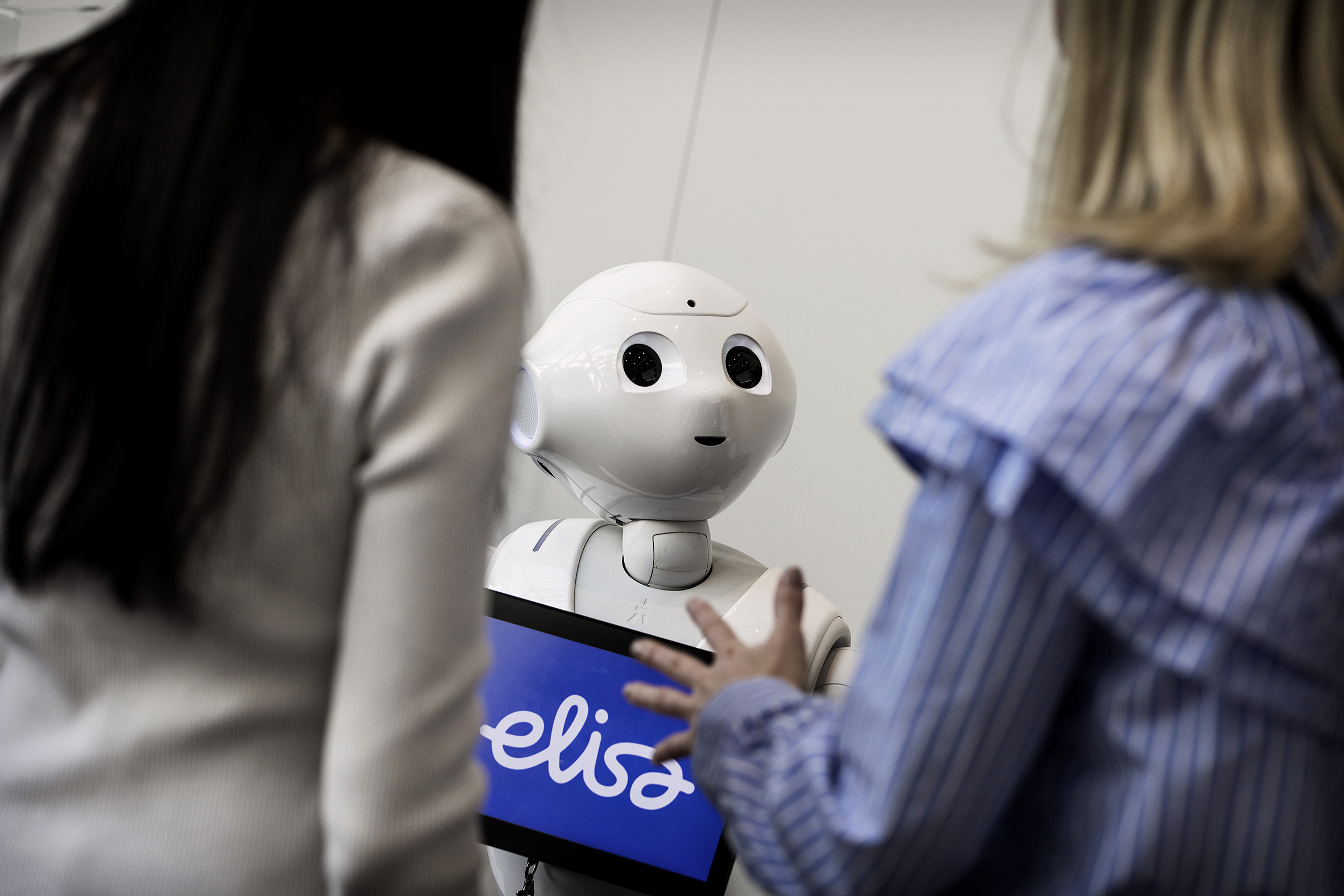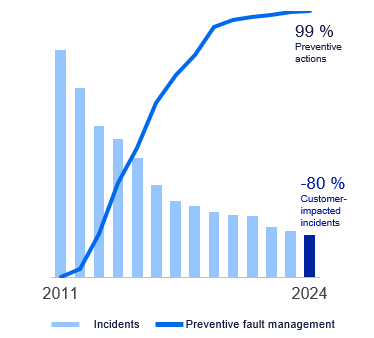We secure people’s privacy in a safe and reliable digital environment
For us, in practice, digitalisation means e.g. more equal participation in society, a more equitable working life, a more flexible work culture, more resource-efficient operations and better productivity. With data, we can automate operations, deliver better services, and create new and innovative solutions.
We also understand the challenges that digitalisation and electronical operations may cause. Cybersecurity is necessity for individuals, services and products. Thus, the reliability, data security and privacy of our ICT services and processes are even more important. We have over 2.8 million consumer, corporate and public administration organisation customers who we serve in Finland, Estonia and internationally. A profound understanding of our stakeholders’ needs is a prerequisite for developing our services to comply with their changing needs.


